Looking forward and back as the Civil Rights Act turns 60
It's been 60 years since the 1964 Civil Rights Act was signed into law.
Across the country, civil rights groups, scholars and others have commemorated the landmark law with panels, comprehensive reports and rallies. Many have cited its impact and other federal laws that came in its wake, including one protecting the right to vote for all citizens and another banning discrimination in housing.
“It propelled a movement that was able to make major civil rights gains,’’ said Melanie Campbell, president of the nonpartisan National Coalition on Black Civic Participation.
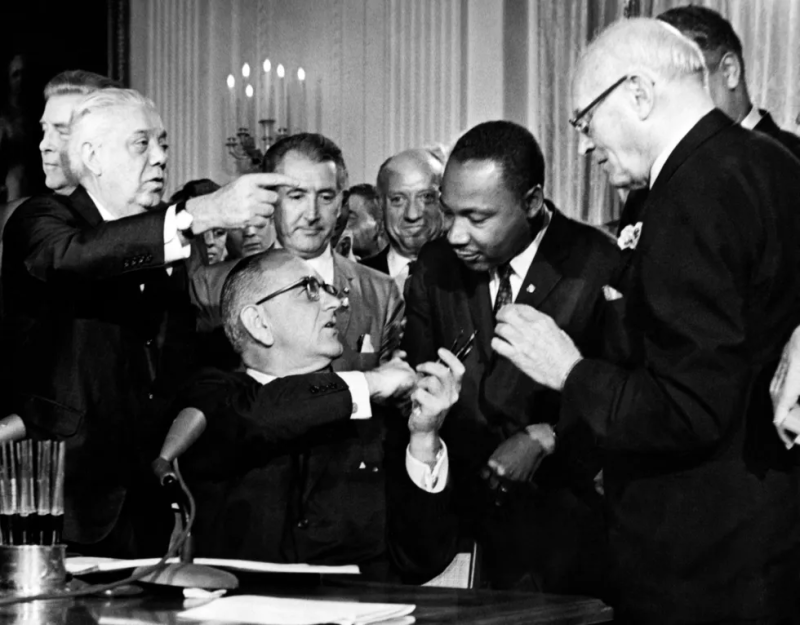
The law outlawed segregation in public places and banned employment discrimination based on race, color, sex, religion, or national origin.
Marc Morial, president of the National Urban League, called the law “transformative.”
“It has not just only changed the arc for Black people. It has changed the arc for women and for other people of color in a profound way,’’ he said.
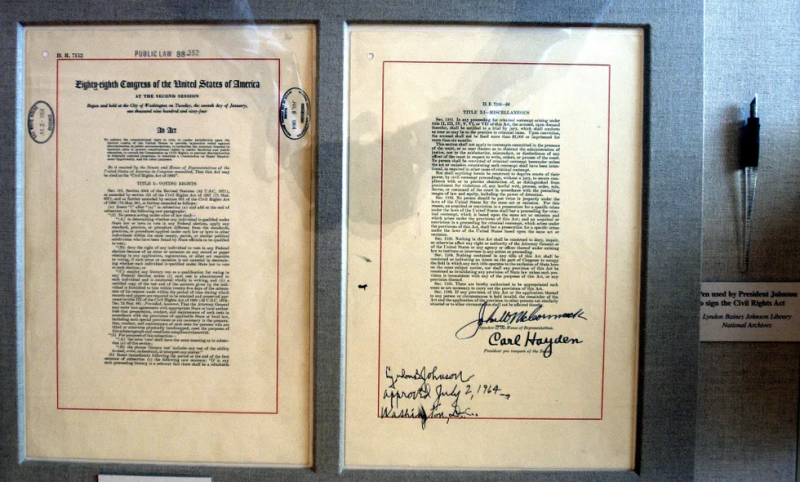
Dig deeper:Timeline: US leaders have pledged to eradicate racism time and again. They keep falling short.
USA TODAY invited nearly a dozen leaders of national organizations to share their take on how far the country has come since the act was signed into law by President Lyndon Johnson on July 2, 1964. They also shared how far they think the U.S. has to go to achieve the full promise of the law.
Extended lives, improved educational success, helped people get better jobs
Maya Wiley, president and CEO of The Leadership Conference on Civil and Human Rights
Imagine a sweeping set of laws ushered in that extended lives, improved educational success for kids, and helped people get better jobs. We’d not only celebrate it – we'd protect it. We have that law today.
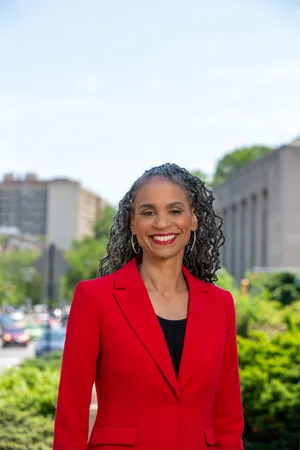
The Civil Rights Act of 1964 added years, literally about three to four years, onto the life expectancy of Black people when health care had to open its once-segregated doors.
More Black students saw their education improve, while white students continued on the same educational footing. It helped to reduce “intense segregation” – schools with 10% or less white students – of Black students in Southern schools from 78% in 1978 to 24% in 1988.
Thanks to employment protections, Black job opportunities, while still far from sufficient, got significantly better, with less of a wage gap and less of an employment gap.
Instead of seeing the tremendous advancement that the law – with lots of legal and community activism – has produced, federal courts and right-wing advocacy groups are attacking the gains we’ve made by using division rather than multiplication.
We should multiply its use rather than divide people by claiming what is good for people of color is bad for people who are white.
Progress is not simply possible – we are living proof
Kelley Robinson, president of the Human Rights Campaign
At moments like these, I can’t help but think of my family – the first free Black family in a little town called Muscatine, Iowa. My great-aunt Bert, our matriarch, passed away recently at the young age of 102, and we went back to that little town to celebrate her homegoing.
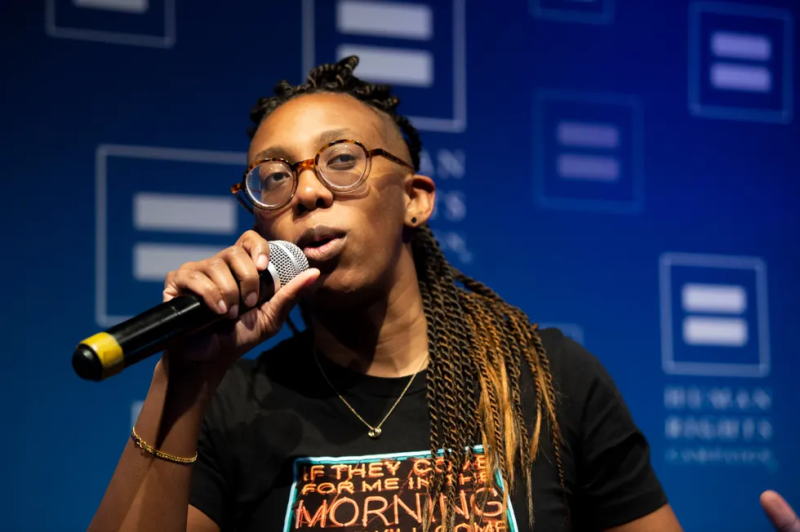
There, we told the story of how Great-Aunt Bert sat at the feet of those who had been born into slavery. We told the story of how we made our way from bondage in Mississippi and Louisiana to freedom in Muscatine.
That was two generations ago. Now, I am the first queer, Black woman to serve as President of the Human Rights Campaign, the country’s largest LGBTQ+ civil rights organization.
Progress is not simply possible – we are living proof of it. Our ancestors were jailed, beaten, and bled because they knew a better future was worth fighting for. They would be proud to see us standing tall today, but they would remind us that our work is far from over.
Today, bullies want to strip us of our hard-earned freedoms and roll back progress. As we mark 60 years since the Civil Rights Act of 1964, we must honor those who came before us, like Great-Aunt Bert, by recommitting to our fight for freedom and justice – without exception.
Still need to protect the civil liberties of all citizens
John Echohawk, executive director of the Native American Rights Fund
It has been 60 years since passage of Civil Rights Act, but the struggle for fair treatment remains.
Native Americans still face the type of discrimination that motivated the passage of the 1964 Civil Rights Act and we still see a failure to uphold our treaty rights under U.S. law.
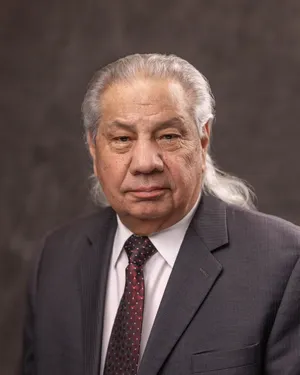
At the Native American Rights Fund, we have been challenging the unfair treatment that Native Americans have been subjected to for far too long. For example, throughout Indian Country, Native Americans have to overcome unreasonable barriers just to cast a ballot. Election services can be over 50 miles away and there is still no residential mail delivery on many Native American reservations.
States are also passing laws intended to disenfranchise Native Americans, especially after Native Americans exercise political power. We have also seen an uptick in discriminatory practices – last year a hotel instituted a no Native Americans allowed policy, which brought a legal challenge from the Department of Justice under Title II of the Civil Rights Act of 1964. This blatant discrimination occurs too often.
It has been 60 years, but we still need to protect the civil liberties of all citizens and hold the government to its word.
A conservative perspective: We've gone too far
Kevin Roberts, president of The Heritage Foundation and Heritage Action for America
The Civil Rights Act was an extraordinary accomplishment, outlawing discrimination on the basis of race, sex, religion, and national origin and securing all Americans’ participation in our society. For the first time, a colorblind society was codified into law.

But today, the Civil Rights Act is in bad shape. College campuses discriminate against certain racial groups in the admissions process in clear violation of the law. Mandatory Diversity, Equity, and Inclusion courses force workers to treat their co-workers differently based on the color of their skin. Some federal programs have been restricted to minority applicants and religious employers have been hit with penalties.
The law is a teacher, and for decades, Americans learned the lesson of the Civil Rights Act: every American deserves equal treatment and respect. But in recent years, many have forgotten that lesson, replacing equality under the law with equity of outcomes. Moving forward, our leaders must reverse the trend and commemorate this anniversary by abandoning discriminatory policies.
Our 'abiding commitment to freedom' is being undermined
Marc Morial, president and CEO of the National Urban League
When President Lyndon B. Johnson signed the Civil Rights Act of 1964, he said it represented “a more abiding commitment to freedom, a more constant pursuit of justice, and a deeper respect for human dignity.”
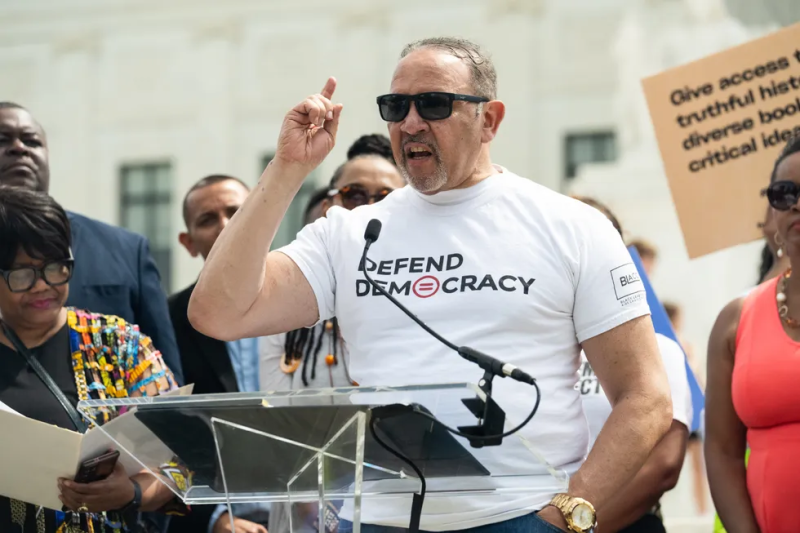
A century after the Emancipation Proclamation, the Civil Rights Act ushered in a transformative era of open doors and unprecedented access.
But the backlash triggered by the racial justice uprising of 2020 presents the gravest threat to the Civil Rights Act in its 60-year history.
Our “abiding commitment to freedom” is undermined by discriminatory voting laws and gerrymandering.
Our “pursuit of justice” is derailed by persistent racism in policing and sentencing and the dismantling of diversity and inclusion policies.
Our “respect for human dignity” is betrayed by an unraveling social safety net and economic policies that uplift the wealthy at the expense of working families.
My predecessor, Whitney M. Young, was instrumental in the passage of the Civil Rights Act. He advanced diversity, equity, and inclusion policies, developing a “Domestic Marshall Plan” that Johnson incorporated into his Great Society program.
The National Urban League remains committed to his legacy, working to uproot the racial divisions embedded in our institutions and realize the promise of 1964.
Souls lost to exploitation and racism
Domingo Garcia, president of the League of United Latin American Citizens
In the early 1900s, Mexican and Native American villages were burned by rangers in the South in the name of ''expansion.'' We’ve seen the tears and heartbreak of those who have lost loved ones to senseless violence like the victims of the Uvalde school shooting or the physical abuse that was experienced by people of color at the hands of individuals with no respect for human life.
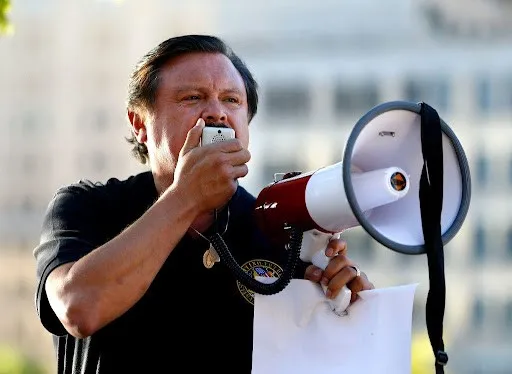
Souls lost to exploitation and racism.
The League of United Latin American Citizens, founded in 1929, is the oldest Latino civil rights grassroots organization in the U.S. Throughout our history, we have significantly influenced legislation on education, immigration, military issues and gun safety.
On the 60th anniversary of the Civil Rights Act, we are reminded the work is ongoing. As we see an unidentified sea of individuals crossing the border from all over the world, we continue to urge government leaders for immigration reform for those who left their countries of origin and who have no rights there ‒ and now here. It is our mission to contribute to the American fabric and we remain committed to the American dream.
But the question remains where do we go from here? In 60 years, some things have changed and others remain the same. It is vital that Latinos and our allies come together. As the saying goes ‒ "El pueblo unido jamas sera vencido" (The people united will never be defeated).
Every generation makes progress
John C. Yang, president and executive director of Asian Americans Advancing Justice
To commemorate the anniversary of the 1964 Civil Rights Act is an honor we do not take lightly at Asian Americans Advancing Justice. At the time the 1964 legislation was signed into law, it was groundbreaking in prohibiting discrimination based on race, color, religion, sex, or national origin.
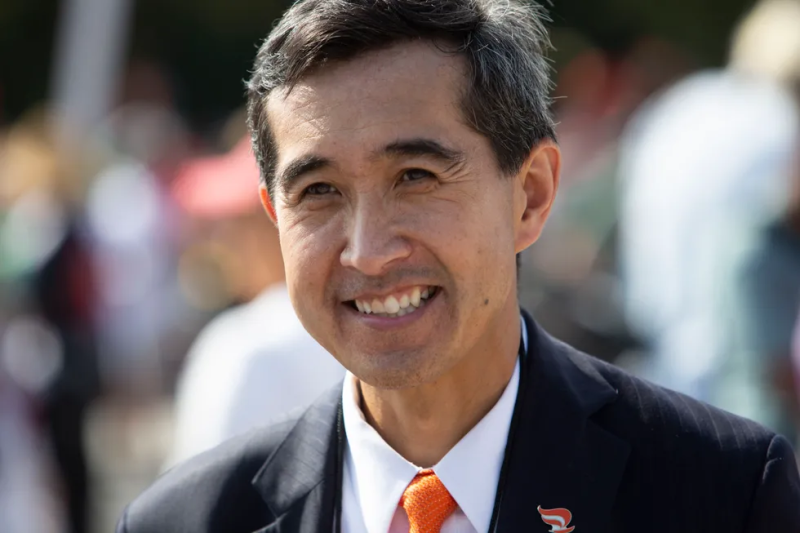
In the early 1960s, Asian Americans were only 0.5% of the population. Our community benefited from the Black Civil Rights Movement successes of the 1950s and 60s. The solidarity shown by Black civil rights leaders for Asian Americans demonstrated the success of intersectional/collective activism in civil rights movements. Even as Asian Americans have grown to represent 7% of the population, the 1964 Civil Rights Act serves as a reminder of progress made and the distance we have yet to travel to achieve true equity.
Every generation makes progress toward the goal of true equity in this country, but none of us will realize the full impact of laws like the Civil Rights Act until and unless we work collectively with the Black community to stop the rollback of our rights and realize the dream of a fair and equitable society for all.
We still have a very long way to go
Melanie L. Campbell, president and CEO of the National Coalition on Black Civic Participation
When theCivil Rights Act of 1964 was signed into law, it was described by Dr. Martin Luther King Jr. as the “Second Emancipation.”
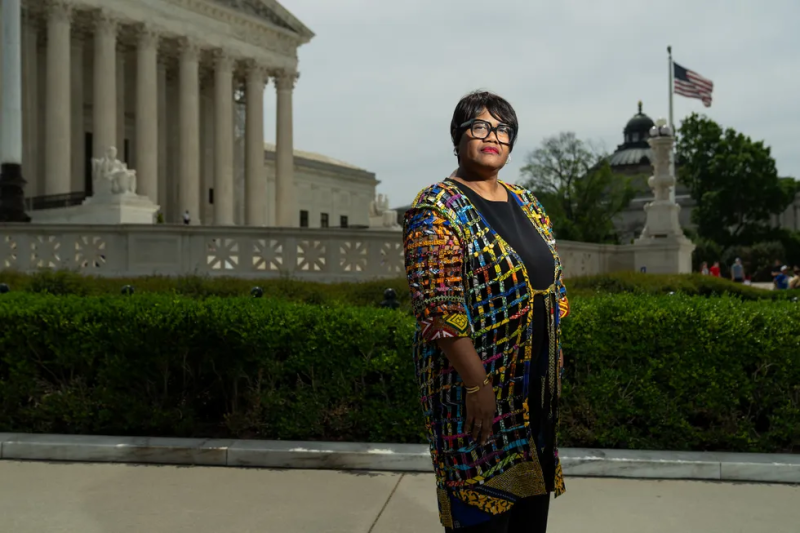
The Act banned segregation, barred discrimination by employers and labor unions, gave way to the formation of the EEOC; and paved the way for passage of the Voting Rights Act of 1965 and Fair Housing Act of 1968.
Unfortunately, there are forces currently working tirelessly to reverse the rights and freedoms established by The Act.
Last year, there was a “reverse discrimination” ruling by the Supreme Court, Students for Fair Admissions vs. Harvard, restricting affirmative action efforts by public colleges/universities. This unjust ruling restricts the historic affirmative action efforts that have provided disadvantaged black and brown students the opportunity to attend the nation’s elite schools. Further, these same forces are using this case as an excuse to attack Diversity, Equity and Inclusion programs in the public and private sector.
These and other constant attacks on our voting rights and the rights of women to control our own bodies on a state level, requires those who believe in freedom, justice, equity, and equality for all to fight back at the ballot box and vote in record numbers in 2024 and beyond.
Channel discontent for a resurrection rather than an insurrection
the Rev. William Barber, president of Repairers of the Breach and co-chair of the Poor People’s Campaign
In popular memory, the Civil Rights Act of 1964 was the legislative response to the demands of the March on Washington.

While it is true that the legislation would never have been won without that mass mobilization, the original demands of that march for “Jobs and Freedom” included an increase in the minimum wage for all Americans and the voting rights protections that would only be enshrined in the Voting Rights Act after the brutality of Bloody Sunday and the courageous Selma to Montgomery March of 1965.
Sixty years later, we must be honest: the federal minimum wage, indexed for inflation, is lower than it was in 1964. What’s more, because the Supreme Court gutted the Voting Rights Act in its 2013 Shelby decision and Congress has failed to remedy it, we have less voting rights protections today than we did on August 6, 1965.
The celebration of historic wins alongside this egregious decay is a source of discontent among everyday Americans. But we have no time for despair.
We are determined to channel discontent for a resurrection rather than an insurrection.
And we are committed to reach 15 million low-income voters who have the power to redefine this political moment as America's single-largest swing vote if they unite around an agenda that once again insists that everyone deserves a living wage and voting rights in the United States of America.
We're all created in the image of God
Rabbi Jonah Pesner, director of the Religious Action Center of Reform Judaism
In our Jewish tradition, equality is based on the concept that all of God's children are "created in the image of God" (Genesis 1:27).
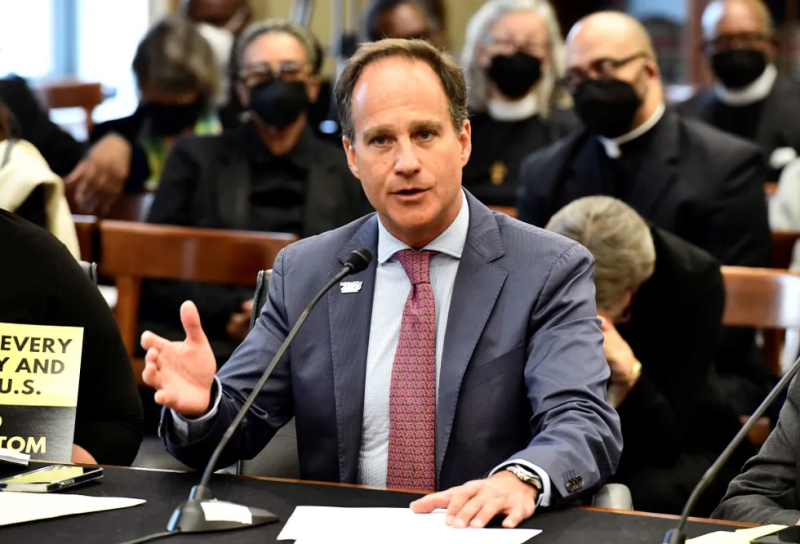
This precept has led the Jewish community to respond powerfully in the fight against racial segregation and discrimination: the Civil Rights Act of 1964 was drafted in large part in our building in Washington, D.C.
However, racism, like antisemitism, has never been fully eradicated from our society; those who seek power weaponize it for their own nefarious purposes. We see it today in the forces of division that aim to restrict the freedom to vote by targeting communities of Color and other marginalized groups.
This blatant discrimination fuels the Reform Jewish Movement’s nonpartisan Every Voice, Every Vote Campaign to strengthen our democracy by encouraging and protecting voter participation.
Our work ties together our Jewish values with our commitment to protecting all minorities, including the many in our Jewish communities who have been targeted due to their intersectional identities as Jews of Color, people with disabilities, or members of the LGBTQ+ community.
As long as some seek to perpetuate racism and discrimination, we must continue to recommit ourselves to the sacred tenets of the Civil Rights Act.
It is all of our responsibility
Sarah Kate Ellis, president and CEO of GLAAD
As we reflect on the 60th anniversary of the Civil Rights Act as a nation, I’m moved by how much progress we’ve made toward acceptance and equality as a society while still being reminded of how deeply racism and violence against communities of color persists, and how much work there is left to do.

Change is often born from the pain and outrage of individuals courageous enough to imagine and fight for a more just world. It’s impossible to talk about the quest for LGBTQ equality without first acknowledging the significant strides made within the civil rights movement and the historic interconnectedness between Black and LGBTQ communities.
The revolutionary Stonewall Uprising of 1969 was spearheaded by LGBTQ people of color. Progress for the acceptance and equality of LGBTQ people over the past 51 years would not be possible if not for the path paved by civil rights leaders before us.
It is all of our responsibility to speak out against racism and systemic injustice and to continue elevating voices and amplifying stories of people of color, especially those who are Black, queer, and transgender.
In the words of (activist) Marsha P. Johnson, "No pride for some of us without liberation for all of us."
We must take an active role in protecting its legacy
Derrick Johnson, president of the NAACP
As we celebrate the 60th anniversary of the 1965 Civil Rights Act, it’s important that we understand the journey that lies ahead of us.
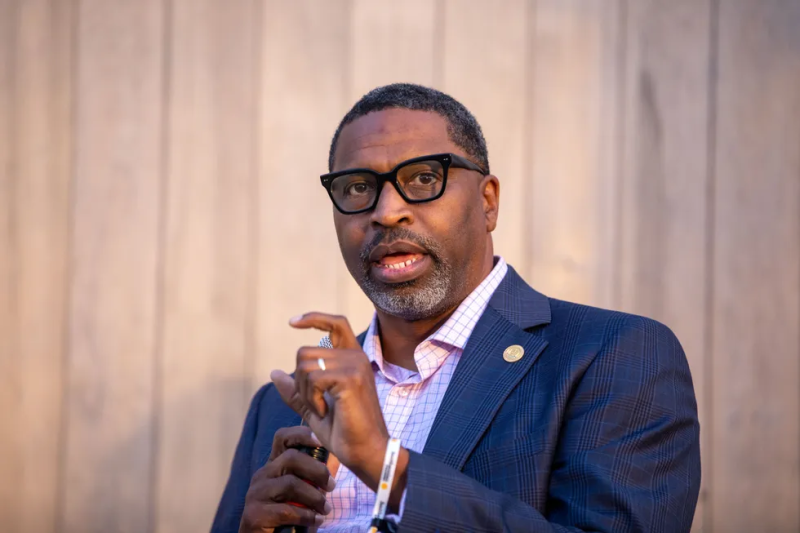
While the law was a first step, it was not until the amended legislation passed in 1965 that we truly began to make significant strides toward equality and justice. It’s also important to understand that the culture of racism is deeply embedded in the country’s foundation. That’s why, as systemic racism continues to manifest in many forms, the promises of the legislation have yet to be fulfilled for all Black Americans.
While Black Americans continue to fall victim to a system that has, at many times, posed insurmountable barriers to progress, we also face mounting threats to the right to effect change.
As of today, more than 40 states have enacted anti-protest laws. And almost half of the country will face new restrictions to the ballot box in November.
The anniversary comes at a critical time. Will we push forward or revert to a time where the color of our skin is used as justification for the degradation of fundamental freedoms?
If we are to truly honor this historic legislation and the pathway it created, we must take an active role in protecting its legacy while building a brighter future. We must reject politicians who deny the fact that Black history is American history or who seek to deny our community the right to have a seat in corporate conference rooms or the halls of Congress.
We must band together, striving towards a time where the promises of our Constitution are fulfilled for every American.
Disclaimer: The copyright of this article belongs to the original author. Reposting this article is solely for the purpose of information dissemination and does not constitute any investment advice. If there is any infringement, please contact us immediately. We will make corrections or deletions as necessary. Thank you.


